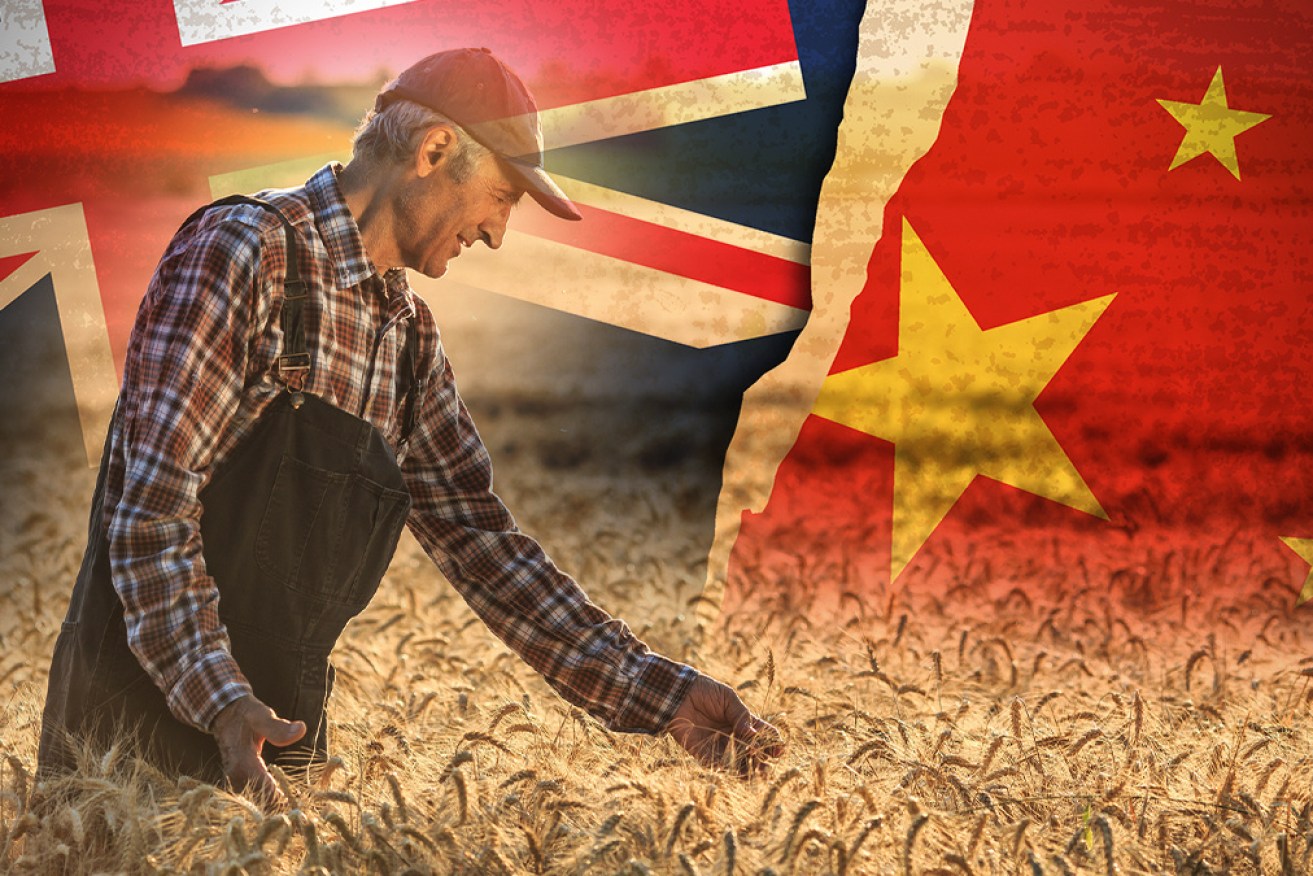China trade dispute: Barley exporters brace for $500 million financial hit


Barley imports into China from Australian firm CBH Grain PTY Ltd have been suspended after quarantine pests were found, China's customs administration says. Photo: TND
China’s imposition of import tariffs on Australian barley could cost farmers up to $500 million a year, according to one industry group.
GrainGrowers predicts the new 80.5 per cent tariff will effectively shut down Australia’s barley trade with China, which accounts for more than 60 per cent of Australian barley exports.
The group’s chairman Brett Hosking said Australian barley growers are nearing the end of their winter planting and have until harvest in October to find alternative buyers.
He told The New Daily farmers would have no trouble selling their product in other markets, but would need to settle for a much lower price.
If a diplomatic solution proves elusive, growers would likely increase sales to Japan, Saudi Arabia, Vietnam and Indonesia, he said.
But importers in these countries will pay a reduced “premium” for Australia’s high-quality barley, and freight costs will be much higher.
“With China being relatively close, there’s a freight advantage there for us in Australia versus going further afield,” Mr Hosking said.
“And they are very established in the use of our barley.
“They love the way it performs in their beer products, they love the way it performs in their feed systems, so at the moment they are prepared to pay a premium to extract that quality of grain out of Australia”.
Tweet from @GrainGrowersLtd
Mr Hosking said the price offered for Australian barley at ports in Geelong and Melbourne had fallen from $270 a tonne to $230 a tonne on the back of Monday night’s announcement – a drop of almost 15 per cent.
Although the price will likely pick up as new export opportunities are uncovered, Mr Hosking said it would take “a little bit of time” to form relationships with new customers in alternative markets.
Meanwhile, Western Australian Agriculture Minister Alannah MacTiernan said the farmers in her state alone could lose up to $200 million as a result of the tariffs – “from reduced barley values and reduced wheat prices, as more farmers turn to wheat crops”.
“This could have a multiplier effect in the regional economies of WA’s grainbelt,” Ms MacTiernan said in a statement.
“This underpins the importance of research and development into new grain varieties, products and markets, to help farmers adapt to ever-changing global trade conditions.”
Tweet from @AlannahMac
The timing of China’s tariff decision has raised questions about Australia’s economic dependence on the industrial superpower, which last financial year received 32.6 per cent of Australia’s goods exports.
Although the tariffs are the culmination of an 18-month-long investigation into an anti-dumping complaint, the announcement came after Prime Minister Scott Morrison publicly called for an independent inquiry into the origins of the coronavirus.
Many analysts therefore believe China is using the tariffs to punish Australia for acting against its national interests.
A ‘little smack’, not a trade war
China’s decision to target barley producers rather than Australian miners, however, suggests the move was meant more as a warning shot than a declaration of economic warfare.
Last financial year, Australian exporters shipped $63.1 billion worth of iron ore and $16.6 billion worth of natural gas to China, alongside $14.1 billion worth of coal, according to the Department of Foreign Affairs and Trade.
Meanwhile, barley and beef exports to the Middle Kingdom in 2018-2019 totalled $915 million and $1.75 billion respectively.
“It’s like the little smack you can give Australia without really hurting yourself too badly, even though they’re obviously hurting Chinese consumers,” UNSW economics professor Tim Harcourt told The New Daily.
Professor Harcourt added that the Chinese government was unlikely to escalate the dispute any further, given it relied on Australian iron ore and suffered from “food security and energy security issues”.
Australia-China Relations Institute director Professor James Laurenceson made a similar point.
Trade spat unlikely to escalate
Although the tariffs could have a devastating impact on individual barley producers, they won’t have a big impact on the broader economy and China is unlikely to take matters further, Professor Laurenceson said.
“It’s important to remember we are just talking about two goods here, barley and beef,” Professor Laurenceson told The New Daily.
“I’m not trying to trivialise that, but there is a $150 billion export trade going to China and we’re not talking about all of that being put at risk.”
Tweet from @j_laurenceson
Professor Laurenceson said it was unlikely the trade dispute would spread to other Australian goods exported to China.
Firstly because the trading relationship is mutually beneficial, and secondly because “China is fighting an international battle for its reputation at the moment, so opening up new trade wars with countries like Australia certainly doesn’t help its image”.
“And the other thing I think’s important to recognise is that the Australian government is not going to back down,” Professor Laurenceson said.
“So the Chinese government, if they haven’t already, is going to very soon realise that, to the extent that they are employing economic coercion, it’s not going to work.”









